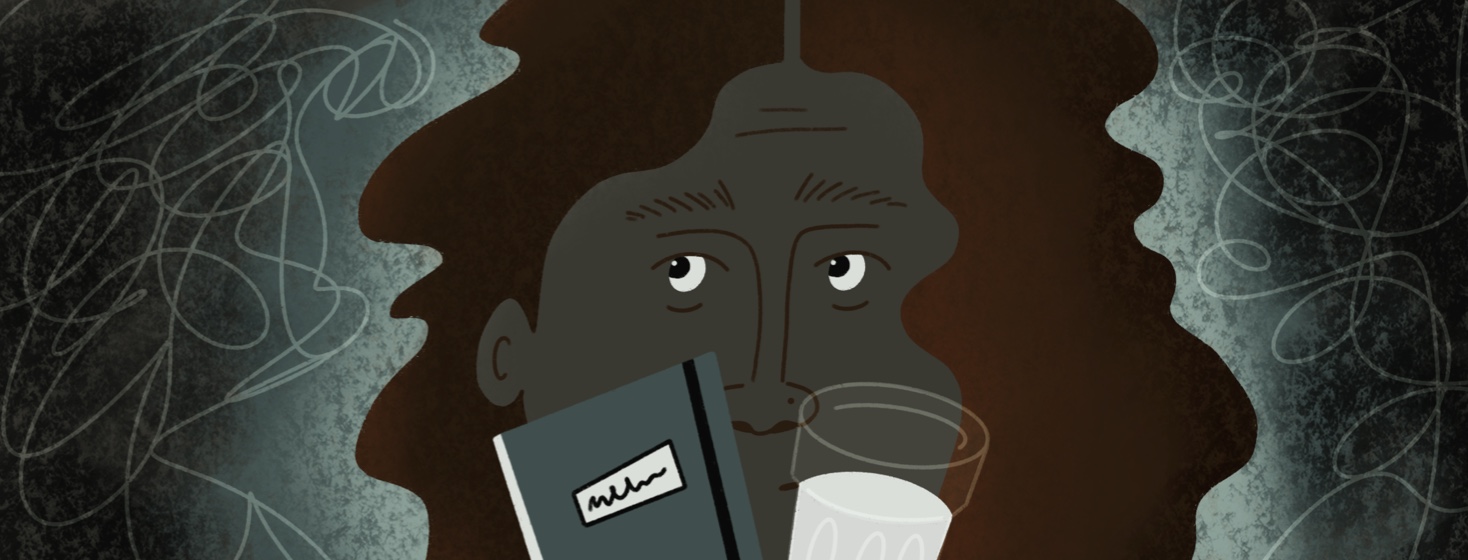7 Techniques I Use To Avoid Sleep Paralysis
If you’ve experienced sleep paralysis, you most likely know how terrifying these experiences can be. They can range from seeing disturbing entities to feeling them suffocating you.
It goes without saying that we all wish we could stop this from ever happening again. Living with narcolepsy makes this very unlikely.
How to avoid having sleep paralysis episodes
Having said that, there are a few techniques I've found that help me avoid having these experiences on a regular basis.
Here are some that have worked for me.
1. Avoiding triggers
When I was younger, I watched horror movies and experienced sleep paralysis episodes every night.
These days, I’m no longer a fan, so on the rare occasion that I do indulge, it's guaranteed that I will have sleep paralysis.
When we sleep, our brain processes everything that has happened throughout the day. Watching frightening scenes might increase the probability of reliving them throughout the night.
2. Relaxing before bed
Having a glass of milk and listening to soothing music before bed usually helps me to wind down. It definitely does wonders to calm my mind. This really helps my night to go in a much smoother way and lessens the chances of sleep paralysis.
3. Avoiding sleeping on my back and shifting positions
Most of the times that I have had terrible nightmares or sleep paralysis, I've realised that I fell asleep on my back. Of course, this may not be the case for everyone, but a lot of people I’ve spoken to have also said that they have more episodes of sleep paralysis if they sleep on their back, more so than in any other position.
Also, if I feel an episode coming on, I quickly force myself to change positions, and it helps to stop it from continuing.
4. Having a strict sleep routine
Keeping a consistent sleep schedule and avoiding caffeine and scrolling through my phone before bed also make a huge difference in avoiding sleep paralysis. As soon as I break from this routine, I immediately notice the difference.
5. Avoiding certain foods before bed
It took me a long time to connect the fact that certain foods were almost guaranteed to trigger sleep paralysis during the night.
This may not be the case for everyone, but for me, avoiding things like seafood, cheese, and caffeine helps me to have a much better night's sleep.
6. Keeping a sleep diary
Keeping a sleep diary is a great way to be able to understand what your triggers can be. This is how I found out that certain foods could be at fault or what a difference relaxing before bed made. It’s definitely a key exercise for anyone who suffers a lot from sleep paralysis.
7. Sleeping at a comfortable temperature
This might sound strange, but temperature actually seems to have quite an impact on how we sleep. Just like relaxing before bed can go a long way, so can sleeping at a comfortable temperature.
Featured Forum
View all responsesHow do you avoid sleep paralysis triggers?
Of course, I have to be completely forthright and say that none of these techniques are scientifically proven, and there is no guarantee that they will work for everyone. For me, they did seem to help somewhat, so hopefully, they could be helpful to some of you too. The key takeaway is that it's essential to try different things until you hopefully find what works for you.
If there are any other techniques you’ve found helpful in avoiding sleep paralysis, please feel free to share them with us!

Join the conversation